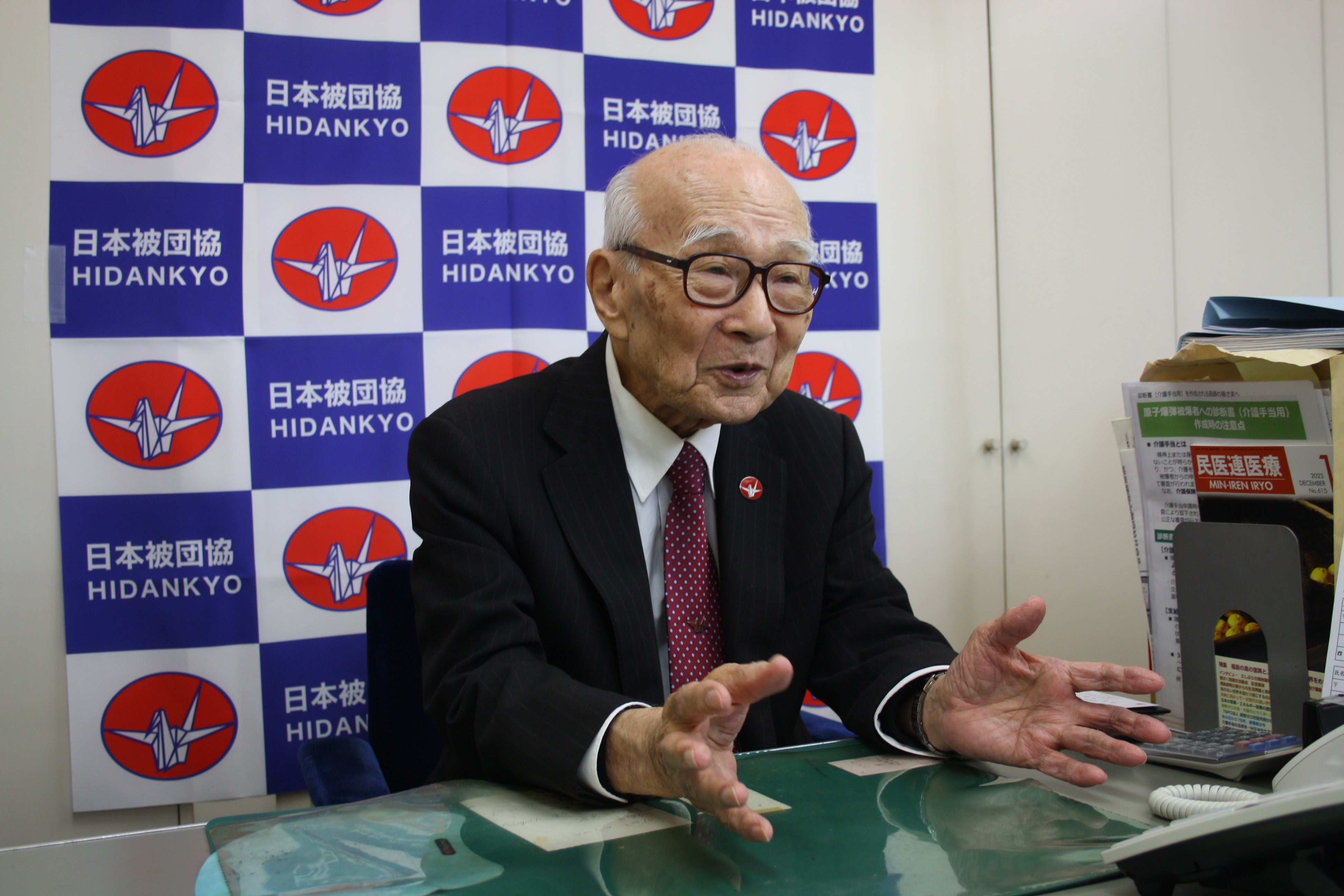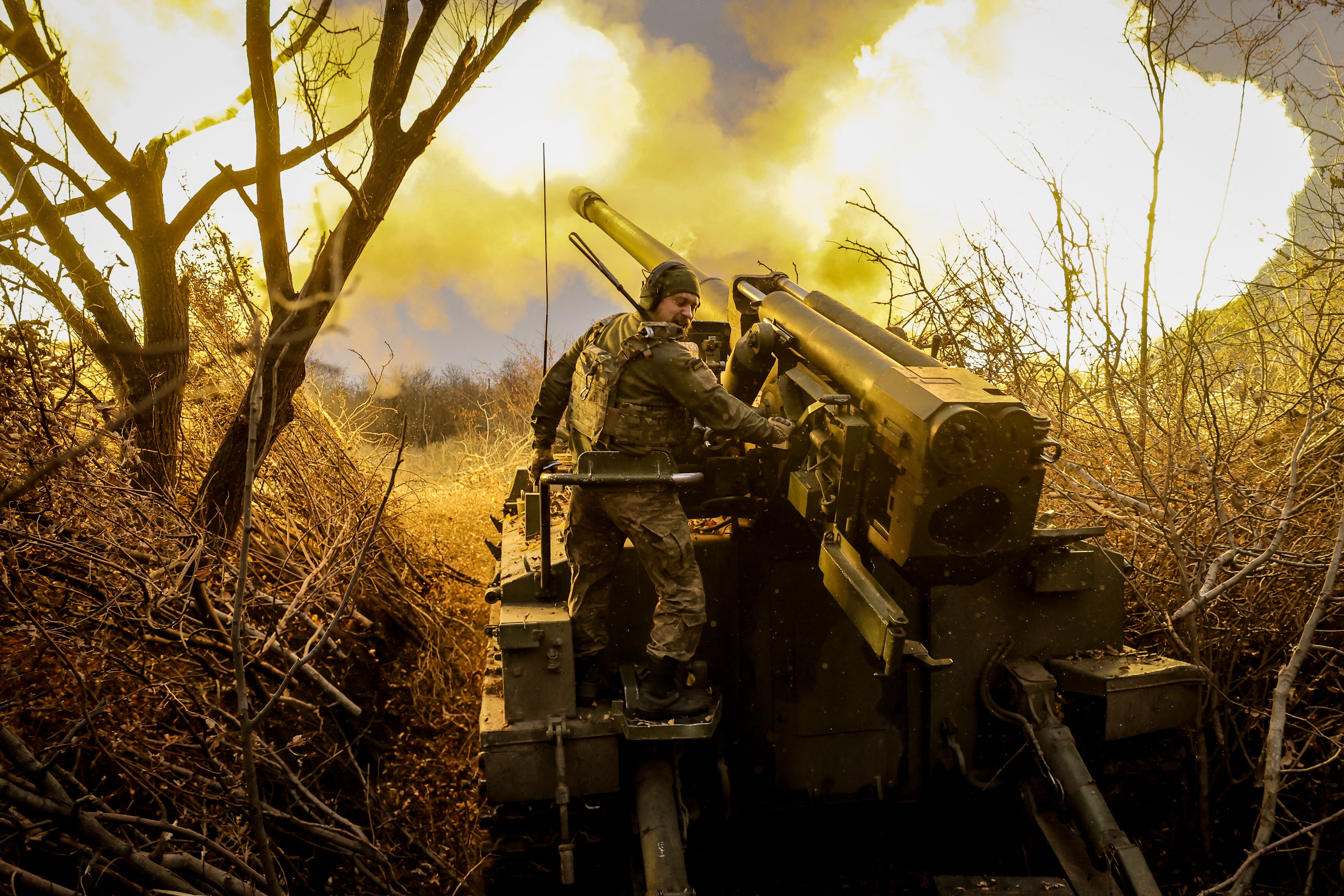I survived Nagasaki bombing – Putin has no idea of the horrors of nuclear war
Exclusive: Terumi Tanaka, co-chair of this year’s Nobel Peace Prize-winning group representing survivors of the US atomic bomb attacks in 1945, tells Adam Withnall in Tokyo that civilisation as we know it is in imminent danger as Russia ramps up its sabre-rattling against the West over the invasion of Ukraine
Your support helps us to tell the story
From reproductive rights to climate change to Big Tech, The Independent is on the ground when the story is developing. Whether it's investigating the financials of Elon Musk's pro-Trump PAC or producing our latest documentary, 'The A Word', which shines a light on the American women fighting for reproductive rights, we know how important it is to parse out the facts from the messaging.
At such a critical moment in US history, we need reporters on the ground. Your donation allows us to keep sending journalists to speak to both sides of the story.
The Independent is trusted by Americans across the entire political spectrum. And unlike many other quality news outlets, we choose not to lock Americans out of our reporting and analysis with paywalls. We believe quality journalism should be available to everyone, paid for by those who can afford it.
Your support makes all the difference.A survivor of the atomic bomb attack on the Japanese city of Nagasaki during the Second World War has warned Vladimir Putin that he has no idea of the destruction and pain such weapons cause as the Russian president threatens the West with the prospect of nuclear war.
Terumi Tanaka, one of a diminishing number of survivors of the US attacks on Japan in August 1945, said the use of nuclear weapons would spell “the end of the human race” and that leaders like Mr Putin “don’t realise the extent of the damage that can be done”.
Mr Tanaka’s warning, made during a sit-down interview with The Independent in campaign group Nihon Hidankyo’s small but bustling Tokyo office, came at a time of escalating nuclear sabre-rattling from the Russian leadership.
This week, Mr Putin issued a decree loosening Russia’s nuclear arms protocols, saying the country could use them even if attacked with conventional weapons if the aggressor were to be backed by a nuclear-armed nation.
The decree serves as a clear warning, after US president Joe Biden gave Ukraine the green light to use American long-range missiles against targets inside Russia, that Moscow reserves the right to respond to such a strike with nukes. Both US and UK long-range missiles have subsequently been used by Ukrainian forces.

Mr Tanaka, 92, said civilisation as we know it faces an “imminent danger” and a nuclear war appears to be “not far away”.
“I’m very scared about it,” he added.
Asked what message he would want to give to the Russian leader, he said: “I would first ask him to tell me what he knows about what kind of impact a nuclear weapon has on a human being. I’d ask him to tell me.
“I’d ask him the question – so, with just one bomb you can kill hundreds of thousands of people. And are you saying it’s OK to do that?”

Mr Tanaka is the co-chair of Nihon Hidankyo – The Japan Confederation of A- and H-Bomb Sufferers Organisations – whose decades of advocacy work against nuclear weapons has finally been recognised by the Norwegian Nobel Committee. He will travel to Oslo next month to address the committee and receive the peace prize.
He was just 13 when the 10,000lb atomic bomb “Fat Man” was dropped on Nagasaki on 9 August 1945, landing around 3.2km from his family home. Part of Nihon Hidankyo’s work is to record witness testimony from survivors of the two nuclear strikes on Japan, and he says his memory of what happened that day will forever be “imprinted on my brain”.

“I was lying down reading a book and then suddenly there was just light everywhere. Everything was completely white around me, and I heard this huge sound. It was like nothing I had ever experienced in my life but of course, I could sense that something very dangerous was happening.
“I ran downstairs and crouched down and covered my ears like we were trained to do. At that moment, the force from the explosion came. I don’t remember hearing it because apparently, I passed out. I don’t remember anything after that.”
Mr Tanaka survived, he said, because two sliding glass doors fell on top of him and yet remained intact. “It’s really strange, the glass was not broken. In other houses, there was no glass left. Afterwards, we realised it was a complete miracle that this glass door did not shatter and that it fell on me and protected me. That’s the only reason I’m still here today.”
Like most of the survivors represented by Nihon Hidankyo, known as hibakusha, Mr Tanaka lost many loved ones on the day of the bombing. He says he went to ground zero and walked around the city for days looking for five of his relatives.
“Three days later, you could still see hundreds of bodies everywhere, and the injured were just crouching in the shadows not receiving any care or attention at all. This is not a situation the human race should be living in. This is not what humans should be doing to each other.”

In its statement announcing the decision to award Nihon Hidankyo the peace prize, the Nobel Committee recognised the group’s “efforts to achieve a world free of nuclear weapons and for demonstrating through witness testimony that nuclear weapons must never be used again”.
Mr Tanaka said the group had believed it might win the award in previous years, particularly on major anniversaries of the Hiroshima and Nagasaki bombings, but that it was completely taken by surprise this year.
“The only reason I can think of for why they decided to give the prize to [us] this year is the international situation regarding nuclear weapons,” he says, citing not just the threats from Russia but also North Korea, Iran and the conflict in the Middle East.
He said winning was “bittersweet” considering what it says about the dangerous situation the world is in. “I was truly moved when I read what the Nobel Committee [said], that they really know what we have been doing … how we’ve been contributing to establishing a taboo against using nuclear weapons, and that they are expecting us to continue.”
This article was first published on 20 November 2024

Join our commenting forum
Join thought-provoking conversations, follow other Independent readers and see their replies
Comments